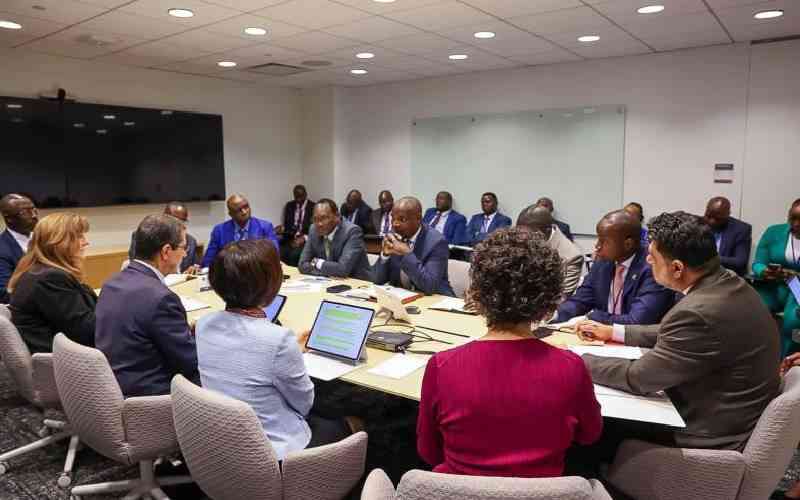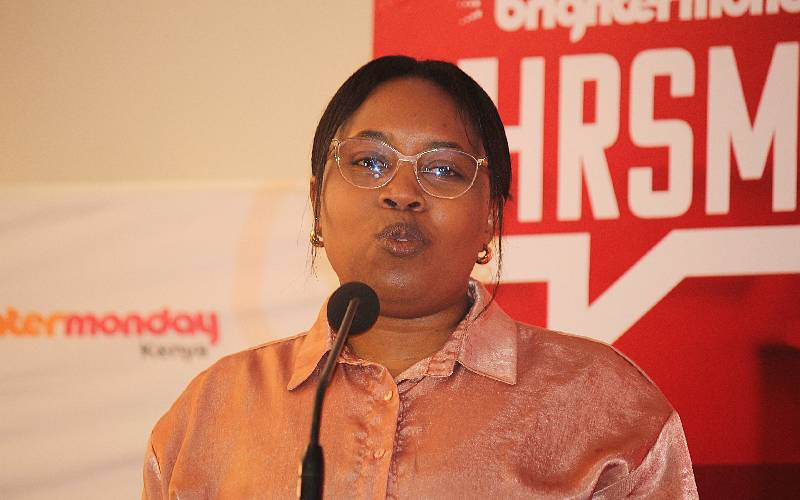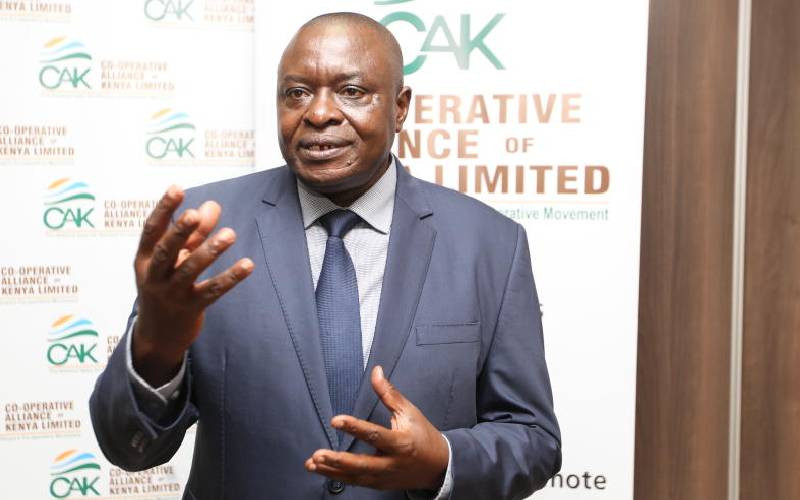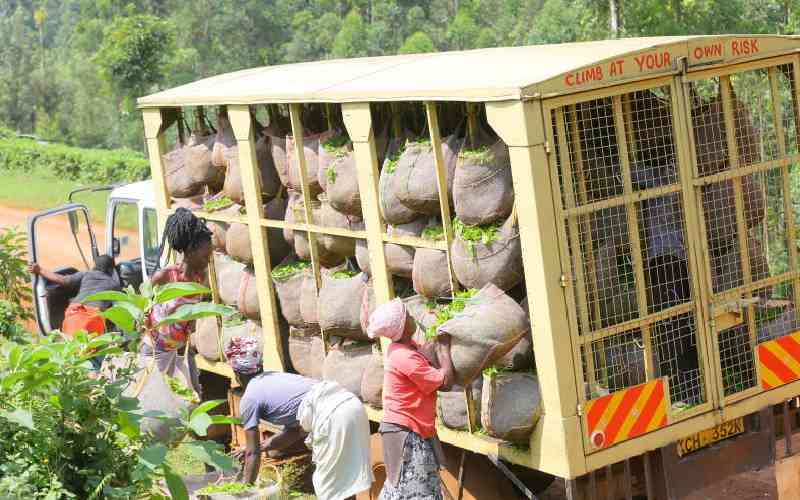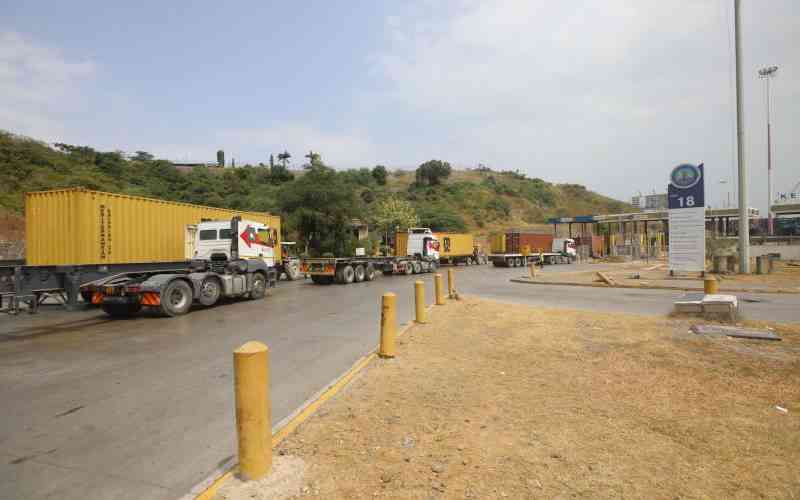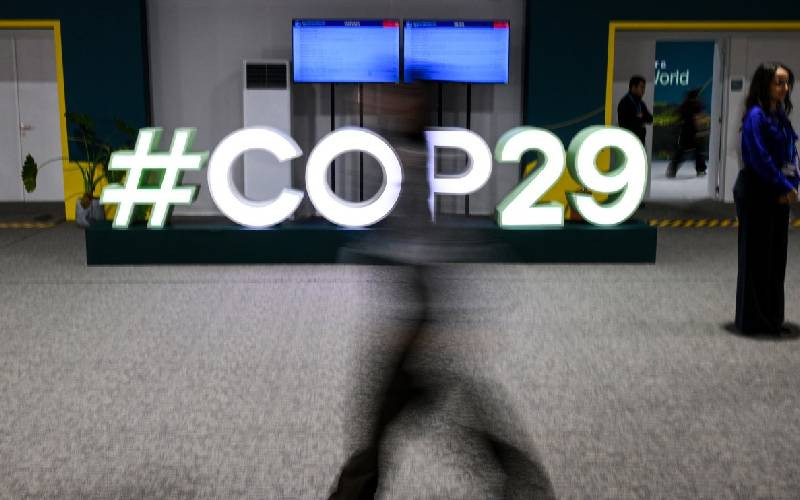
The closing hours of COP29 in Azerbaijan were fraught with tension and anticipation, after the tabling of a new climate finance plan, which proposed an annual target of Sh32.3 trillion (US$250 billion) by 2035 for developing countries, a figure that sparked immediate backlash.
Delegations from developing countries argued that the proposed amount is both insufficient and misaligned with the urgent needs of vulnerable nations grappling with the climate crisis.
African negotiators outright dismissed it as ‘a joke’. The funds are just a fraction of the Sh168.3 trillion ($1.3 trillion) demanded by vulnerable nations required to combat climate change effectively.
In addition, the text proposed that the $250 billion includes contributions, not just from wealthy nations, but also from private finance and developing countries themselves, diluting the responsibility of the global north.
Friederike Roder, from Global Citizen aptly captured the frustration, stating, “The US$250 billion target is not enough, not big enough, not fast enough, not good enough.” She explained that taxing the wealthiest individuals—just two per cent of the 3,000 billionaires worldwide—could easily generate US$250 billion annually in grants.
Special Envoy for Climate Change, Ali Mohamed, did not mince his words, “The proposed target to mobilise US$250 billion per year by 2035 is totally unacceptable and inadequate to delivering the Paris Agreement,” he declared.
Observing the stark contrast with findings from the Adaptation Gap Report, which estimates adaptation needs at Sh51.8 trillion (US$400 billion) annually, Mohamed warned that this lowball figure would lead to ‘unacceptable loss of life in Africa and around the world’ and imperil the future of the planet.
Mohamed also took issue with the redistribution of responsibility in the text. “It is no longer developed countries who are responsible under this formulation,” he explained.
“It is rendered as a target for which all countries are responsible and where developed countries are taking the lead. This is unacceptable,” he added.
ALSO READ: Blank cheque or climate lifeline? COP29's finance text sparks debate
The text does make some concessions. It recognises the need for grant-based public finance for adaptation, a long-standing demand of the developing world.
There’s also an acknowledgement of the principle of ‘common, but differentiated responsibilities,’ which balances equity in climate action. But these gestures are undermined by glaring omissions and vague commitments.
For example, the text proposes scaling finance to US$1.3 trillion per year by 2035, but offers no roadmap or mechanisms to achieve this target.
The reliance on private finance—historically negligible in addressing climate goals—renders the commitment speculative at best. Dr Vaibhav Chaturvedi, from CEEW, critiqued this approach, stating that even the US$1.3 trillion target appears to be a sham when adjusted for inflation and the growing scale of climate impacts.
Stay informed. Subscribe to our newsletter
Mohamed Adow, director of Power Shift Africa, dismissed the US$250 billion as ‘a slap in the face’ of developing nations.
“Our expectations were low, but this is a slap in the face. No developing country will fall for this,” he said.
Adow accused the COP29 presidency of playing a weak game with the climate finance outcome.
“The figure of $250 billion is about 20 per cent of what developing countries have asked for. Are we really settling for a fifth of the ambition needed to tackle the climate crisis?” he posed.
The text, while nominally ambitious, relies heavily on private finance—a historically unreliable source—and even expects contributions from developing countries themselves.
“We need developed countries to grab the bull by the horns and put forward a number that reflects the actual needs of developing countries,” Adow urged, adding, “Rich countries need to bypass this president and negotiate eye to eye with developing countries,” he continued.
The draft’s shortcomings extend to its failure to address key issues, such as biodiversity, food systems, and the rights of Indigenous peoples—omissions that have baffled observers.
Food systems, which account for a third of global emissions, are conspicuously absent despite their cost-effective potential for mitigation. This neglect proves the disconnect between the stated goals of COP29 and the practical realities of combating climate change.
Alexandra Scott from ECCO called the text ‘the lowest common denominator from the presidency’, and argued that it fails to leverage innovative financing mechanisms that could significantly increase climate funding. She lamented the lack of systemic reforms in the global finance architecture, an issue repeatedly raised but left unaddressed.
Dr Rachel Cleetus of the Union of Concerned Scientists warned that the proposal risked undermining the Paris Agreement itself. “With a paltry climate finance offer of US$250 billion annually, richer nations are dangerously close to betraying the Paris Agreement,” she said.
“This is nowhere near the robust and desperately needed funding lower-income nations deserve,” she added.

